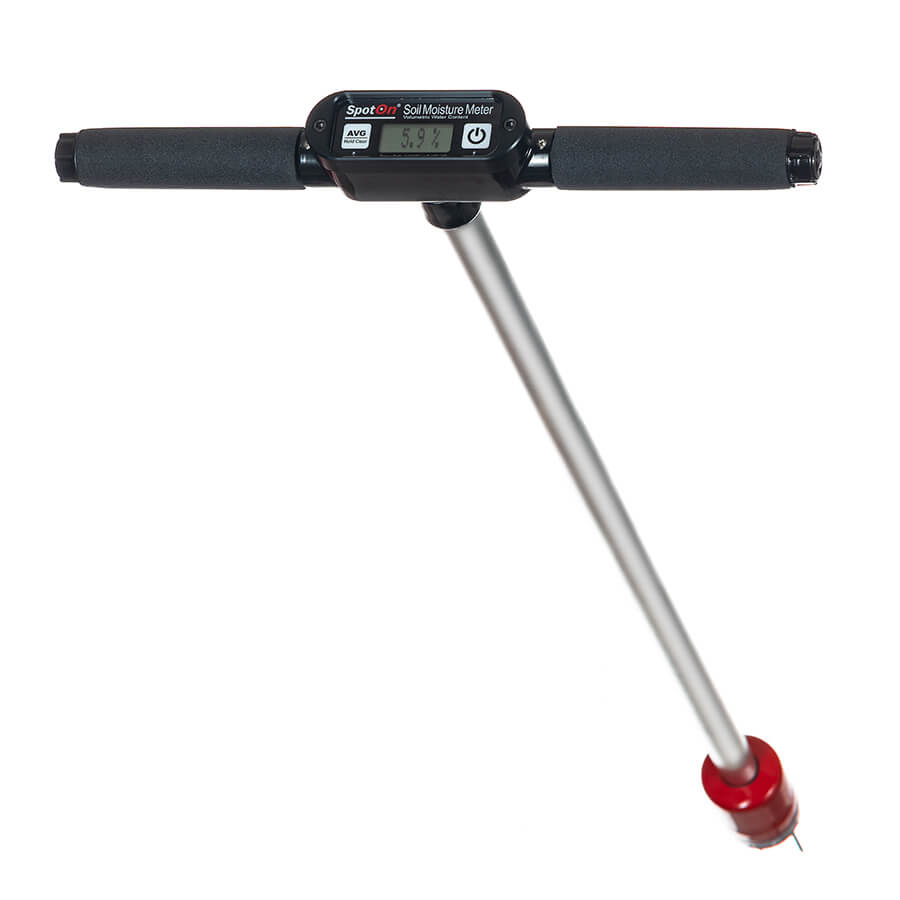How a Moisture Meter Can Assist You Keep Optimum Conditions in Your Home or Office
How a Moisture Meter Can Assist You Keep Optimum Conditions in Your Home or Office
Blog Article
The Ultimate Guide to Dampness Meters: A Comprehensive Summary and Just How They Can Save You Cash
Moisture meters serve as essential tools in identifying and monitoring moisture web content in materials, helping in preventing costly damages and ensuring the quality of items. Comprehending the subtleties of different kinds of wetness meters, their applications, and the prospective cost-saving advantages they provide can be a game-changer for organizations and specialists alike.
Kinds Of Dampness Meters
Different types of dampness meters are readily available for various applications in various sectors. One typical kind is the pin-type wetness meter, which determines the electrical resistance in between 2 pins put into a material. This type is appropriate for wood, drywall, and various other building materials. Pinless dampness meters, on the other hand, usage electromagnetic sensor plates to check a bigger area without creating damages to the material's surface area. Moisture Meter. These meters are perfect for promptly assessing moisture levels in large locations such as wall surfaces and floors.

Infrared wetness meters determine the thermal residential or commercial properties of a product to determine its dampness web content non-invasively, making them useful for applications where pin or pinless meters may not be appropriate. Understanding the various types of dampness meters readily available can help industries choose the most ideal device for their details dampness measurement requirements.

Benefits of Making Use Of Wetness Meters
Wetness meters provide indispensable benefits in precisely checking and examining moisture degrees in varied materials and atmospheres. One of the main benefits of making use of wetness meters is the avoidance of prospective damages triggered by excess moisture.
Moreover, using dampness meters can lead to raised energy performance. In agricultural setups, moisture meters play a critical role in enhancing crop yields by making it possible for farmers to check soil dampness degrees and make educated watering choices.
How to Select the Right Dampness Meter
Selecting the ideal wetness meter entails considering key elements such as product compatibility, dimension variety, and calibration precision. When selecting a wetness meter, it's vital to make certain that the meter is suitable for the particular product you will be screening. Various materials have differing electrical homes that can affect moisture analyses, so choosing a meter made for your material is important for accurate results. Furthermore, consider the dimension range of the moisture meter. Make sure that the meter can spot moisture levels within the array required for your applications. Calibration precision is another critical variable to maintain in mind. Opt for a moisture meter with reliable calibration to guarantee specific and consistent readings. Some meters may require periodic calibration changes, so understanding the calibration process is crucial. By thoroughly evaluating these factors, you can select a moisture meter that meets your requirements and offers exact wetness dimensions for your projects.
Appropriate Strategies for Wetness Meter Usage

Cost Cost Savings With Dampness Meter Applications
How can the calculated usage of dampness meters cause substantial price financial savings throughout numerous sectors? Dampness meters play an important function in expense savings by avoiding prospective damages and making certain high quality control in various markets. In the agriculture market, moisture meters help in figuring out the optimal time for collecting crops, preventing over-drying or excess moisture that can influence the end product's top quality. This specific monitoring assists farmers stay clear of unnecessary losses and optimize their yield.
Likewise, in building, dampness meters help avoid costly problems by discovering moisture degrees in building products, such as timber or concrete, which can cause structural concerns otherwise resolved quickly. By recognizing trouble areas at an early stage, specialists can take restorative steps to stay clear of substantial fixings or substitutes, ultimately conserving money and time.
Furthermore, in the food processing sector, moisture meters are important for checking item top quality and making certain compliance with security laws. By precisely measuring moisture material in food items, manufacturers can protect against spoilage, maintain quality, and lower waste, resulting in significant cost savings. On the whole, the tactical application of wetness meters is an important financial investment that link can result in substantial cost reductions and improved efficiency across different sectors.
Conclusion
In conclusion, wetness meters are beneficial devices for identifying and measuring dampness degrees in various products. By making use of the ideal dampness meter and following proper techniques, users can efficiently stop pricey damages triggered by excess moisture. Spending in a top quality wetness meter can result in substantial cost savings in the lengthy run by determining possible concerns early and allowing timely remediation. Ultimately, dampness meters are important instruments for preserving the honesty and long life of materials and structures.
Wetness meters offer as vital devices in identifying and checking moisture web content in materials, helping in avoiding costly problems and guaranteeing the high quality of products. Infrared wetness meters determine the thermal residential properties of a material to establish its wetness material non-invasively, making them beneficial for applications where pin or pinless meters may not be suitable.Moisture meters supply indispensable benefits in precisely evaluating and checking wetness degrees in diverse products and environments. In agricultural settings, moisture meters play an important role in optimizing plant yields by enabling farmers to check dirt wetness levels and make notified irrigation decisions.In conclusion, moisture meters are valuable tools for detecting and measuring dampness degrees in different materials.
Report this page